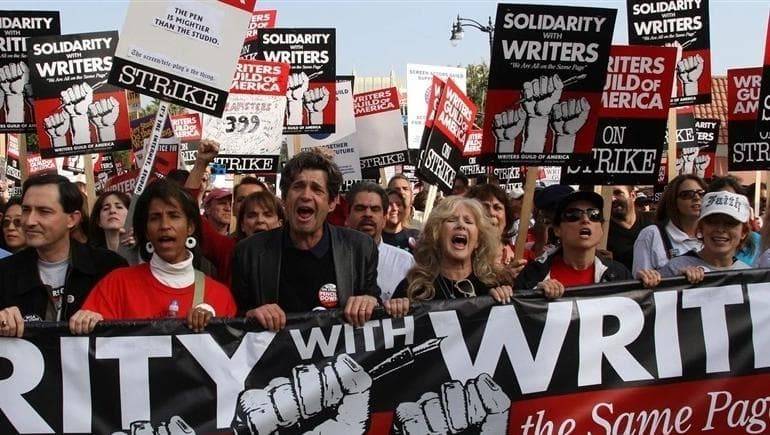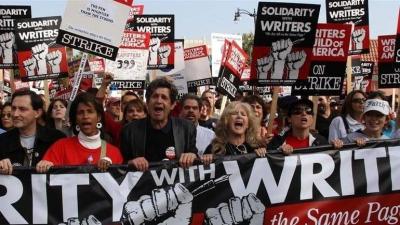As a result of the failure to reach any agreement with the actors in the film and television sector in Hollywood, thousands of American screenwriters and television writers are striking today, demanding higher wages and a larger share of profits. Production companies argue that they are forced to cut costs due to the economic situation.
The strike will commence this afternoon, putting Hollywood in crisis as the entertainment industry struggles with significant changes resulting from a global surge in digital streaming. Such a move could halt the airing of successful programs, such as those broadcast in the evening, and significantly delay the launch of television series and films scheduled for this year.
Screenwriters emphasize that they face difficulties in making a living from their profession, as their salaries have stagnated or even declined due to inflation, while companies continue to make profits and increase executive salaries. The Alliance of Motion Picture and Television Producers, which represents production companies, indicated late Monday that they had offered writers "generous compensation increases" but no agreement was reached.
For decades, screenwriters have received some compensation for the reuse of their works, such as for the re-broadcast of a television show or the sale of DVDs. This compensation has either been a percentage of the revenues generated by the studios from a film or program or a fixed amount paid each time the work is re-shown. However, with streaming platforms, writers have been receiving fixed amounts annually, even if their work achieves global success, similar to the series "Bridgerton" and "Stranger Things," which garnered hundreds of millions of views worldwide.
A television writer based in Los Angeles, who wished to remain anonymous, said, "Everyone is aware that a strike is about to begin. The possibility of reaching an agreement will determine how companies will pay us now and in the future."
The last significant social movement in Hollywood was in 2007-2008 when screenwriters went on a strike that crippled the audiovisual sector in the United States for 100 days, leading to losses of two billion dollars in the industry. The American Writers Guild represents approximately 11,500 writers in New York, Los Angeles, and other locations.




